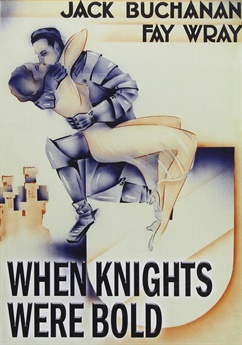Related Research Articles
UFA GmbH, shortened to UFA, is a film and television production company that unites all production activities of the media conglomerate Bertelsmann in Germany. The original UFA was established as Universum-Film Aktiengesellschaft on December 18, 1917, as a direct response to foreign competition in film and propaganda. UFA was founded by a consortium headed by Emil Georg von Stauß, a former Deutsche Bank board member. In March 1927, Alfred Hugenberg, an influential German media entrepreneur and later minister of the economy and minister of agriculture and nutrition in Adolf Hitler's cabinet, purchased UFA and transferred ownership of it to the Nazi Party in 1933.

Sir Michael Elias Balcon was an English film producer known for his leadership of Ealing Studios in west London from 1938 to 1956. Under his direction, the studio became one of the most important British film studios of the day. In an industry short of Hollywood-style moguls, Balcon emerged as a key figure, and an obdurately British one too, in his benevolent, somewhat headmasterly approach to the running of a creative organization. He is known for his leadership, and his guidance of young Alfred Hitchcock.

Herbert Brenon was an Irish-born U.S. film director, actor and screenwriter during the era of silent films through 1940.
Mutz Greenbaum, sometimes credited as Max Greene or Max Greenbaum, was a German film cinematographer.

Walter Wanger was an American film producer active from the 1910s, his career concluding with the turbulent production of Cleopatra, his last film, in 1963. He began at Paramount Pictures in the 1920s and eventually worked at virtually every major studio as either a contract producer or an independent. He also served as President of the Academy of Motion Picture Arts and Sciences from 1939 to October 1941 and from December 1941 to 1945. Strongly influenced by European films, Wanger developed a reputation as an intellectual and a socially conscious movie executive who produced provocative message movies and glittering romantic melodramas. He achieved notoriety when, in 1951, he shot and wounded the agent of his wife, Joan Bennett, because he suspected they were having an affair. He was convicted of the crime and served a four-month sentence, then returned to making movies.
Poverty Row is a slang term for small Hollywood studios that produced B movies from the 1920s to the 1950s, typically with much smaller budgets and lower production values than those of the major studios. Although many of these studios were based in the vicinity of Gower Street in Hollywood, the term does not necessarily relate to any specific physical location.

Herbert Sydney Wilcox CBE was a British film producer and director.

Herbert Blaché, born Herbert Reginald Gaston Blaché-Bolton was a British-born American film director, producer and screenwriter, born of a French father. He directed more than 50 films between 1912 and 1929.

Forever and a Day is a 1943 American drama film, a collaborative effort employing seven directors/producers and 22 writers, with a large cast of well-known stars.

Dawn is a 1928 British silent war film directed by Herbert Wilcox and starring Sybil Thorndike, Gordon Craig, and Marie Ault. It was produced by Wilcox for his British & Dominions Film Corporation. The film was made at Cricklewood Studios with sets designed by Clifford Pember.

Guy Newall was a British actor, screenwriter and film director in a career that encompassed the silent era of film-making to the early years of sound films.

Limelight is a 1936 British musical film directed by Herbert Wilcox and starring Arthur Tracy, Anna Neagle and Jane Winton. It was released in the U.S. as Backstage.
Julius Hagen (1884–1940) was a German-born British film producer who produced more than a hundred films in Britain.

When Knights Were Bold is a 1936 British musical comedy film directed by Jack Raymond and starring Jack Buchanan, Fay Wray and Garry Marsh. Songs include "Let's Put the People To Work" sung by Jack Buchanan, "Onward We Go" sung by Buchanan & soldiers' chorus, and "I'm Still Dreaming" sung by Buchanan.

Flames of Passion is a 1922 British silent film drama directed by Graham Cutts, starred Mae Marsh and C. Aubrey Smith.

Chu-Chin-Chow is a 1923 British-German silent adventure film directed by Herbert Wilcox and starring Betty Blythe, Herbert Langley, and Randle Ayrton.
Albert Victor Bramble (1884–1963) was an English actor and film director. He began his acting career on the stage. He started acting in films in 1914 and subsequently turned to directing and producing films. He died on 17 May 1963.
Hepworth Picture Plays was a British film production company active during the silent era. Founded in 1897 by the cinema pioneer Cecil Hepworth, it was based at Walton Studios west of London.
The Ideal Film Company was a British film production and distribution company that operated between 1911 and 1934.
Norman G. Arnold was a British art director who designed the sets for over a hundred and twenty films.
References
- ↑ Low p.132-33